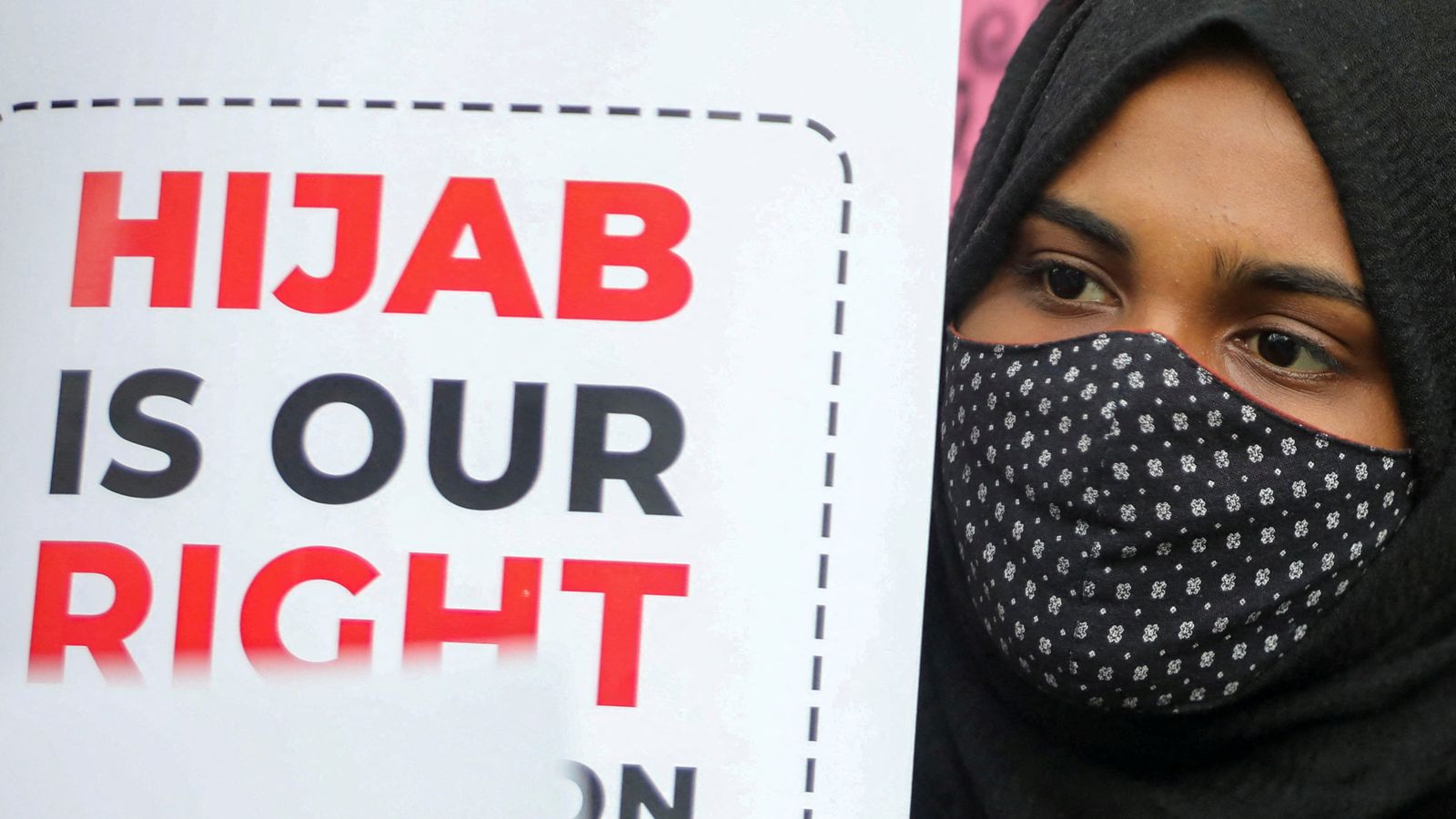A controversial ban on wearing hijabs in classrooms in part of India has been upheld by a court, in a decision that has been branded “deeply disappointing”.
The ban last month by the state of Karnataka sparked protests by Muslim students and parents as well as counter-protests by Hindu students.
The issue was widely seen by India’s large Muslim minority as a bid to sideline the community in the Hindu-dominated nation, and some fear the verdict could lead to similar bans in other states.
A number of female Muslim students are considering dropping out of college over the judgement, which was handed down on Tuesday.
Chief Justice Ritu Raj Awasthi of the High Court of Karnataka said that the wearing of the hijab by Muslim women “does not form a part of essential religious practice in Islamic faith”.
He said in the judgement the government had the power to prescribe uniform guidelines, dismissing various petitions challenging the state ban.
“We are of the considered opinion that the prescription of school uniform is only a reasonable restriction constitutionally permissible which the students cannot object to,” Awasthi said.
13 women and girls die after ‘heart-wrenching’ well collapse at wedding in India, says Modi
Bappi Lahiri: Bollywood ‘disco king’ dies aged 69
Schools in southern India reopen after students banned from wearing hijabs and religious clothing
Ayesha Imthiaz, a third-year undergraduate student in the Karnataka district of Udupi where the protests began, said she would either drop out of her government-aided college or opt for a correspondence course.
She said her fellow Muslim female students were planning to do the same.
“We can’t take off the hijab, we won’t take off the hijab,” she said.
“We have fifth semester exams next month. We will have to sit that out unless things change by then.”
She previously described how it was humiliating to be asked to take off the hijab before class.
The Students Islamic Organisation of India, which represents thousands of Muslim students across the country, said their fear was that Tuesday’s verdict would encourage more states to ban the hijab in class.
“We don’t want it to set a national precedent and we want it overturned,” its national secretary Musab Qazi said. “The court verdict might embolden more states to ban it.
“So in all likelihood, we will approach the Supreme Court.”








